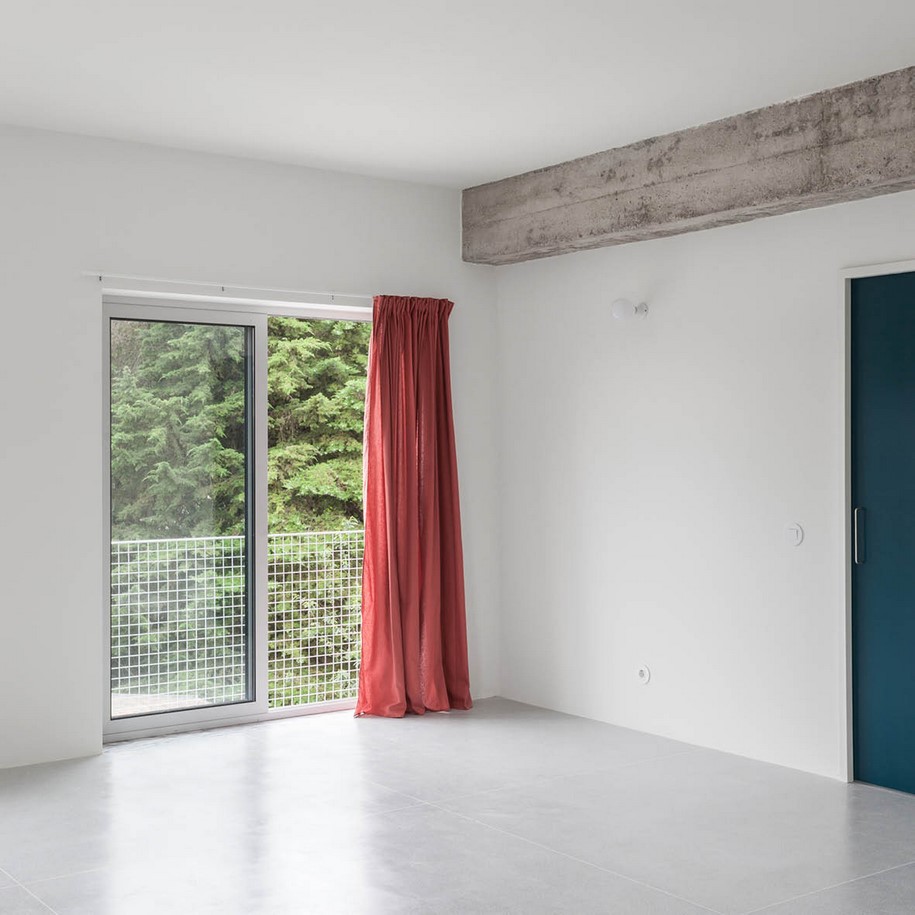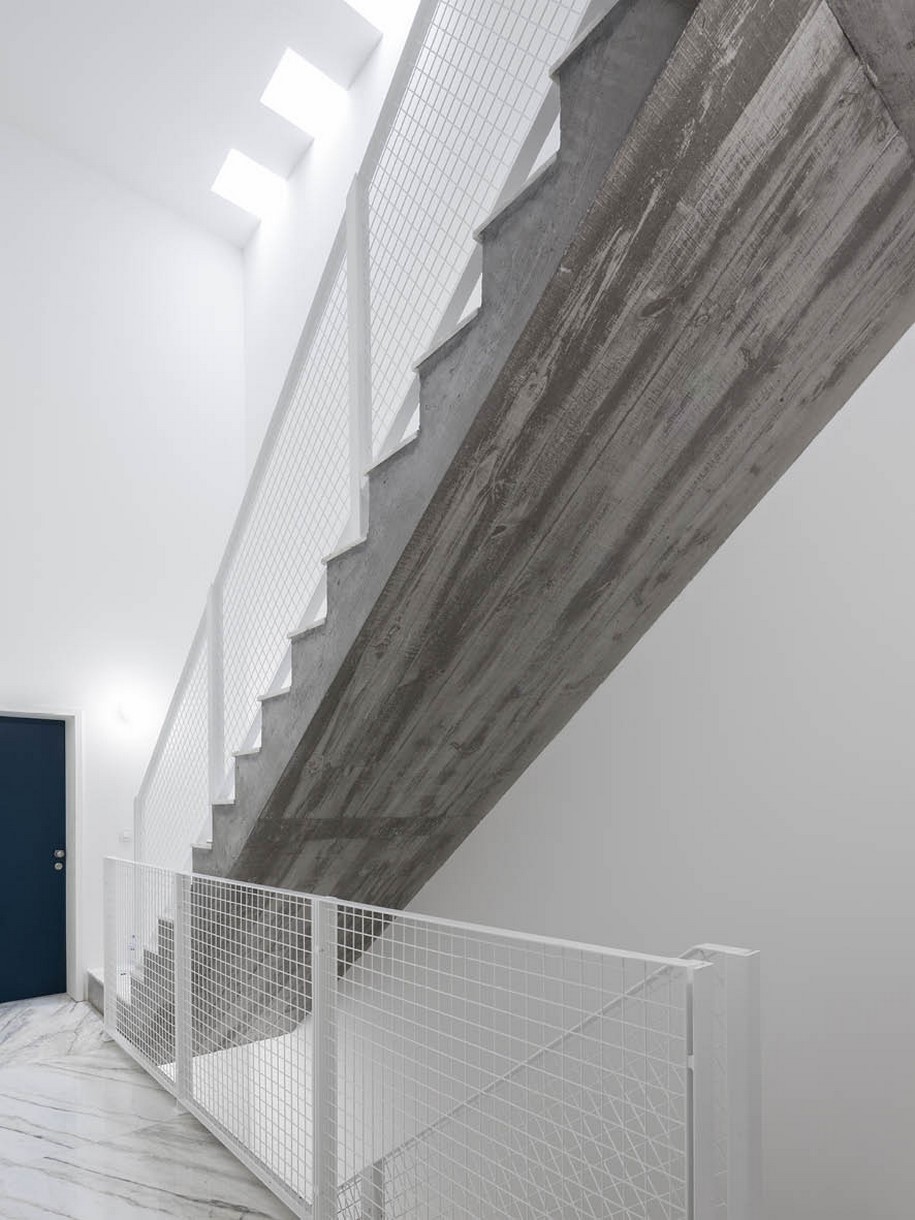Fala Atelier converted a former clothing factory into a housing unit. The factory that looked like a house to ‘fit in its context’, idea of the original owner, was transformed into an apartment block that resembled a factory in an archetypical and existential innuendo.
Each of the three levels was to be comprised of two apartments where the extremely low budget imposed a ‘social housing standard’ construction. Nevertheless, the existing open plan granted very generous areas and panoramic views in each apartment, creating a spatial tension.
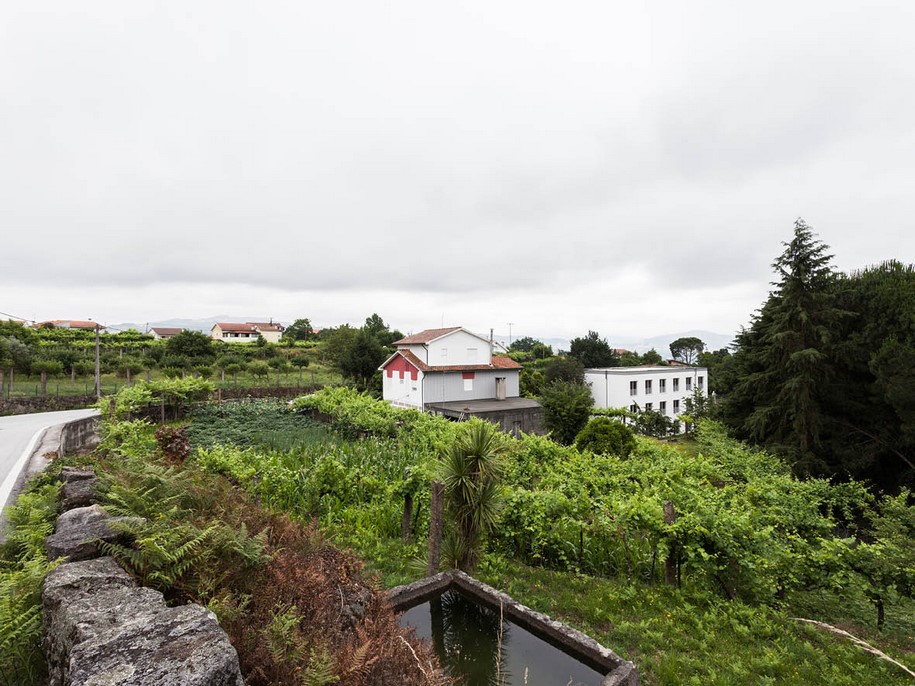
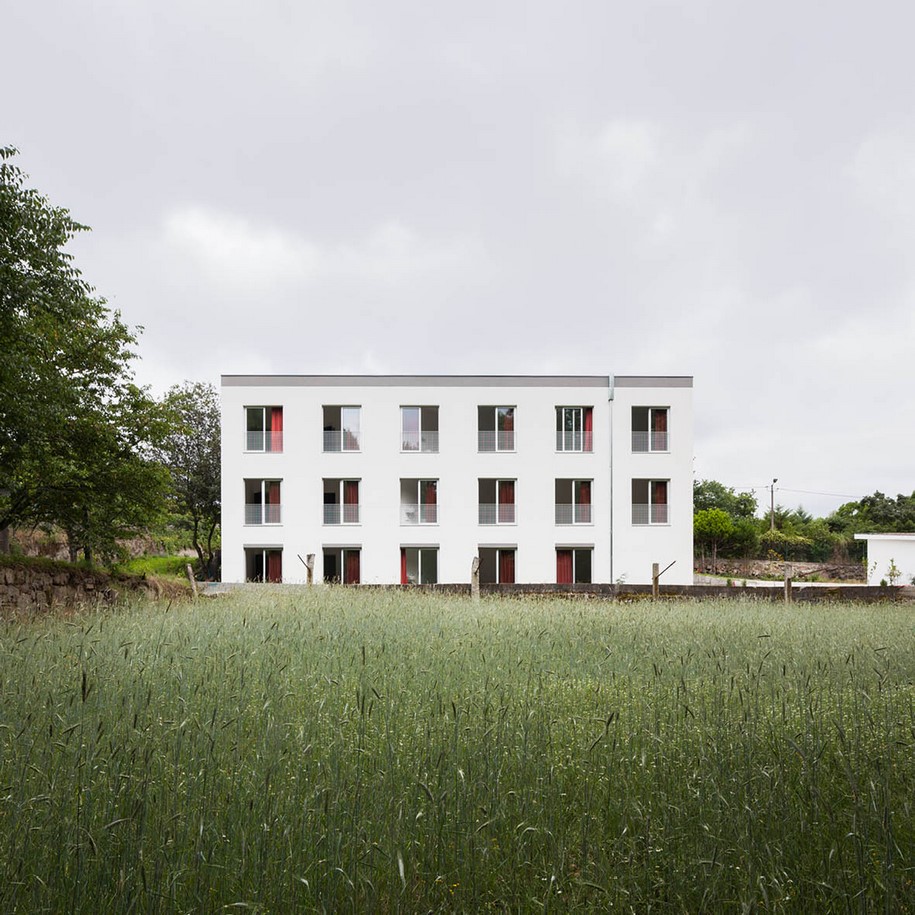
The geometry of the plan started from the existing alignment of columns.
The axis, off centred due to the different sizes of the machines that originally occupied the space, provided a grid; from that point, geometry ruled over the general arrangement.
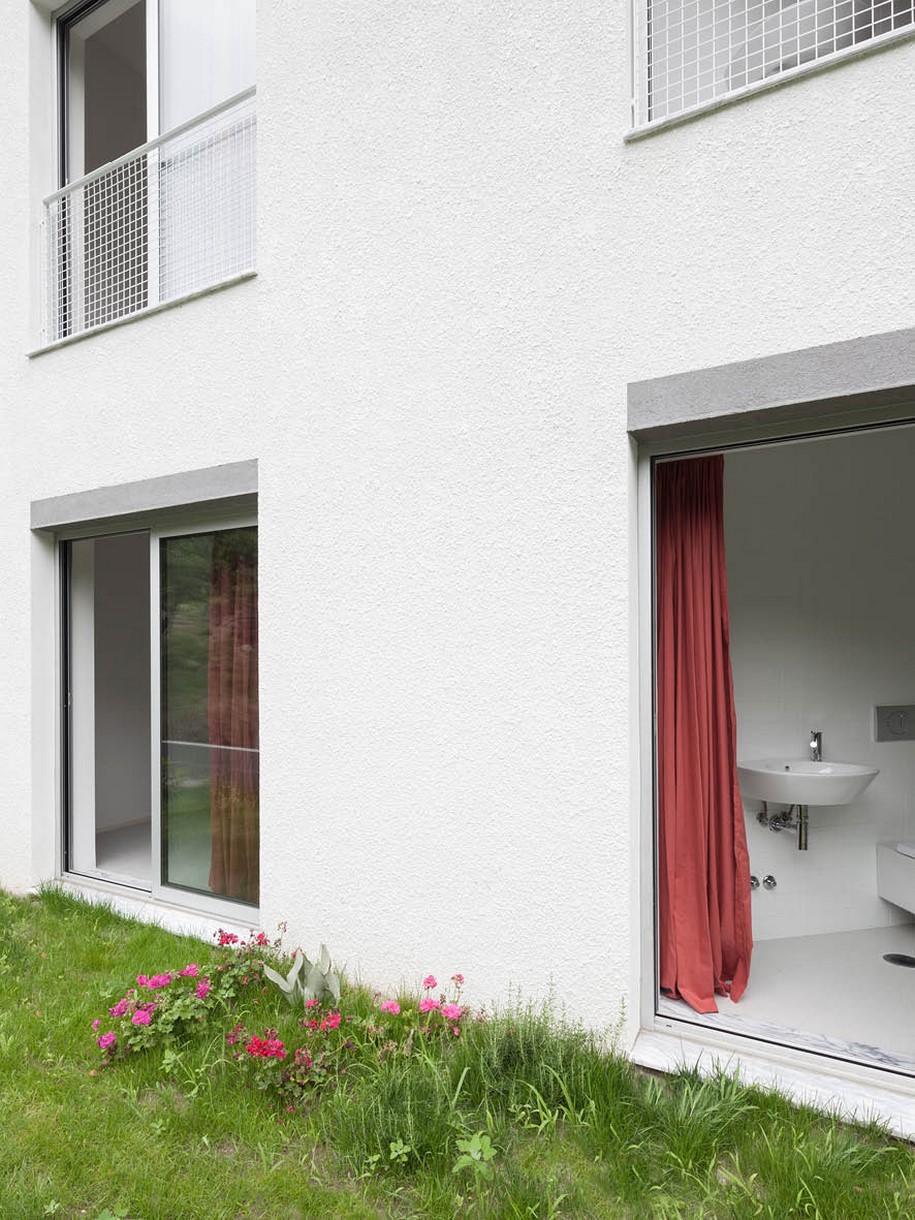
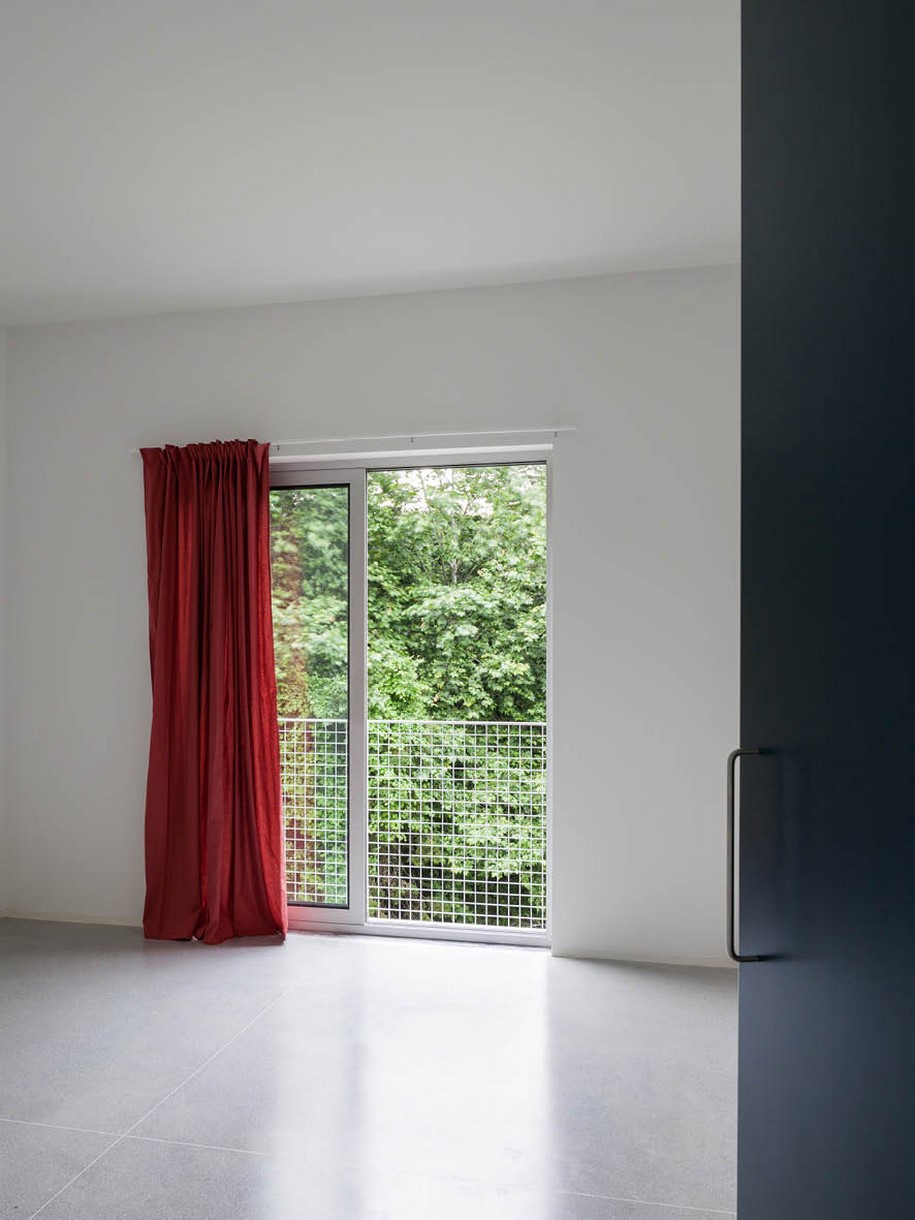
Six square rooms, one of them divided in two triangular spaces, a curve, and a small kink.
Rules, exceptions and unbalanced symmetries were imposed to achieve an order.
A sequence of equally distanced blue doors, the three concrete columns and the brutal beam create a sense of continuity along the different apartments.
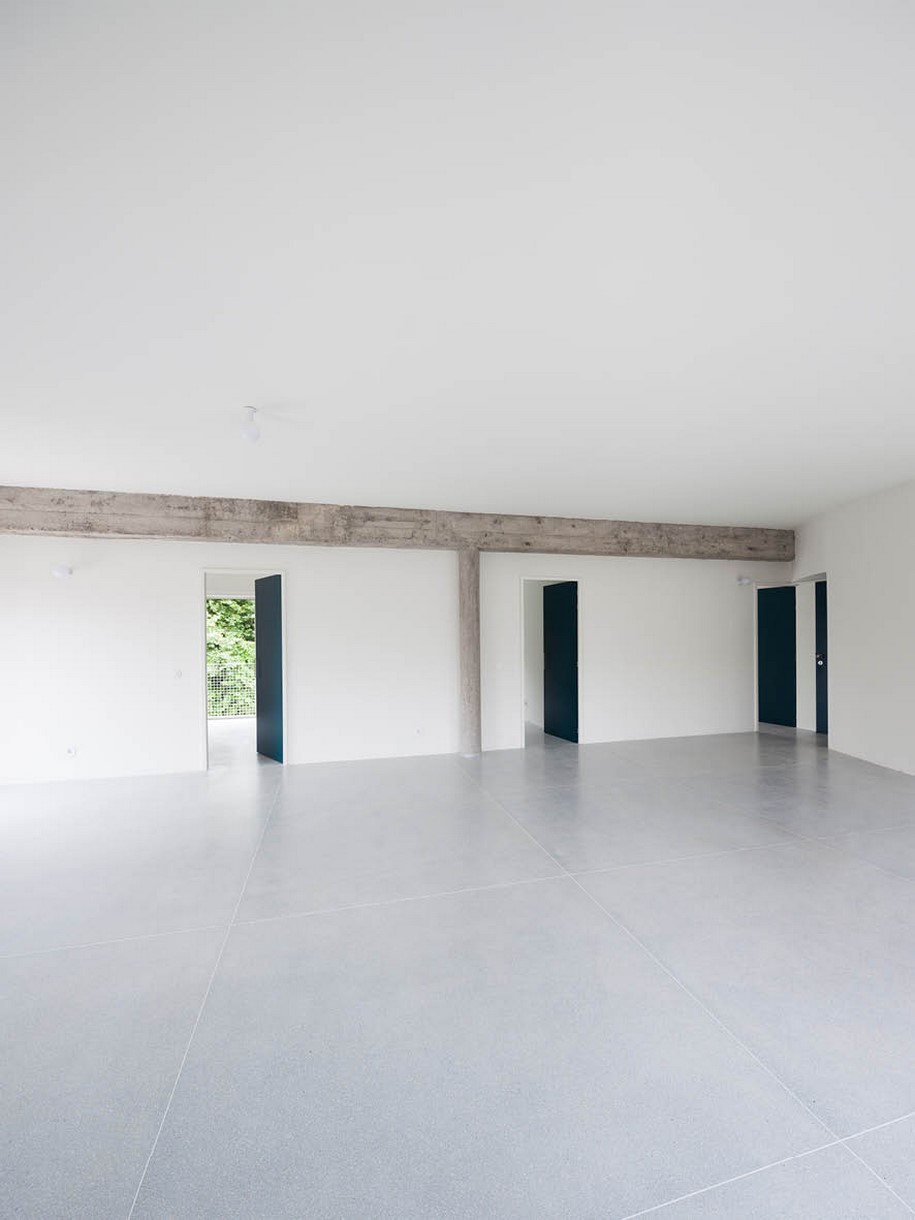
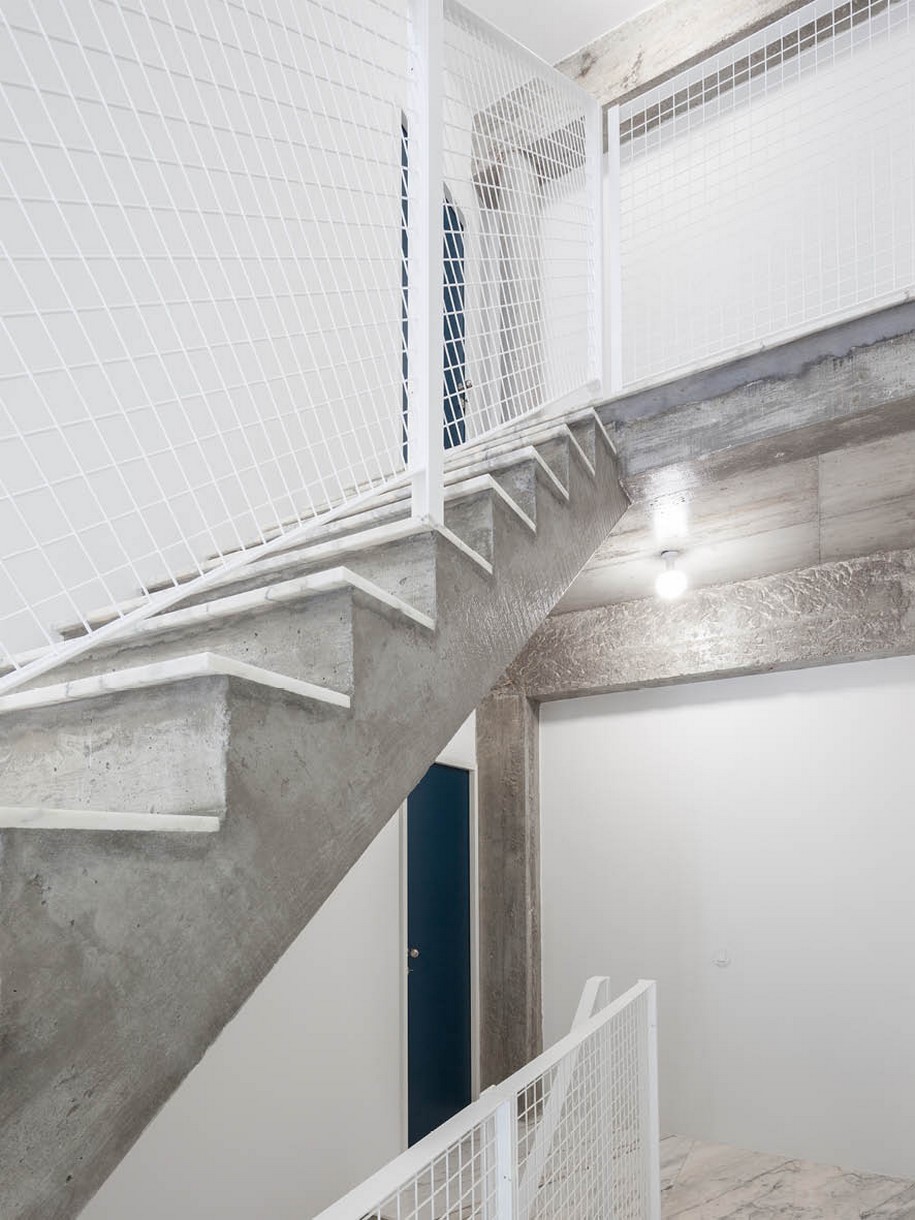 The facade is simple and ordered, following rules dictated by the plan.
The facade is simple and ordered, following rules dictated by the plan.
The white volume is stressed by an apparently regular grid of identical windows; the rain pipes are exuberantly employed. The stale cornice, the roughness of the white texture, the repetition of the same opening and the domestic blue door marking the building’s entrance hold an architectural language. The economy of means is just the counter part of the imposed rhetoric.
Collages
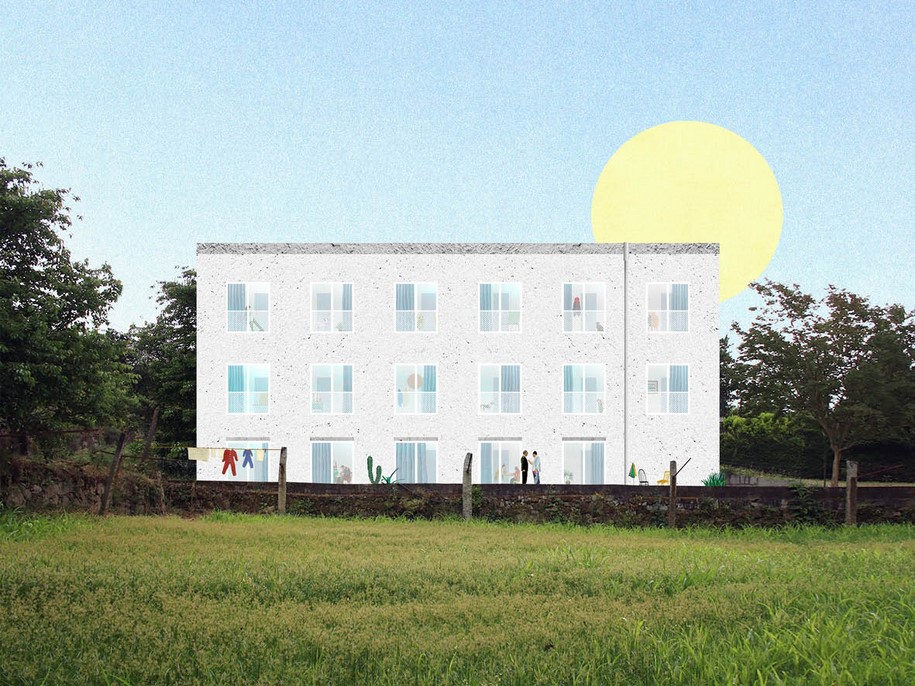
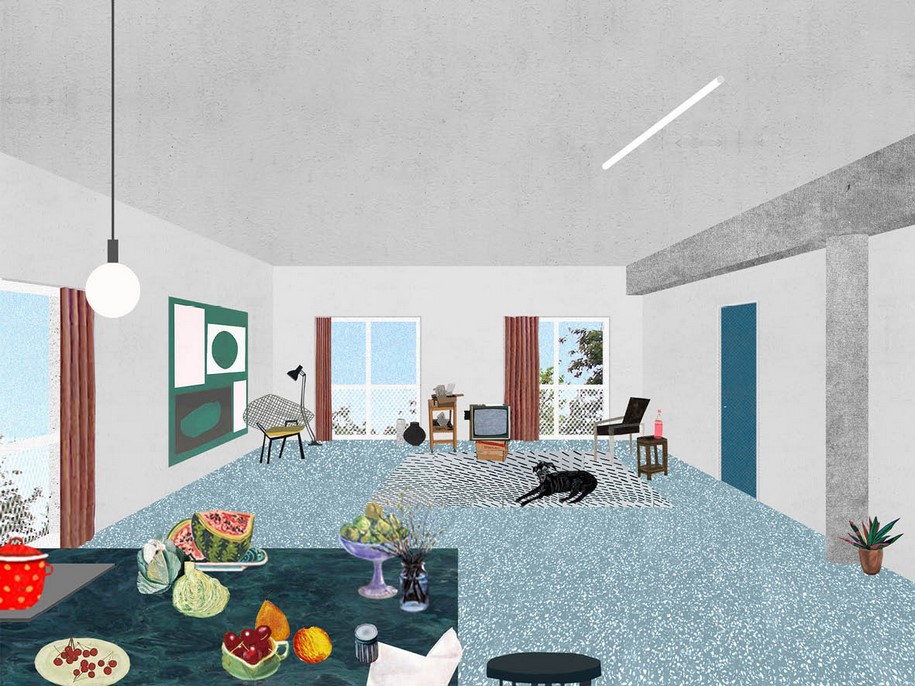
Plans
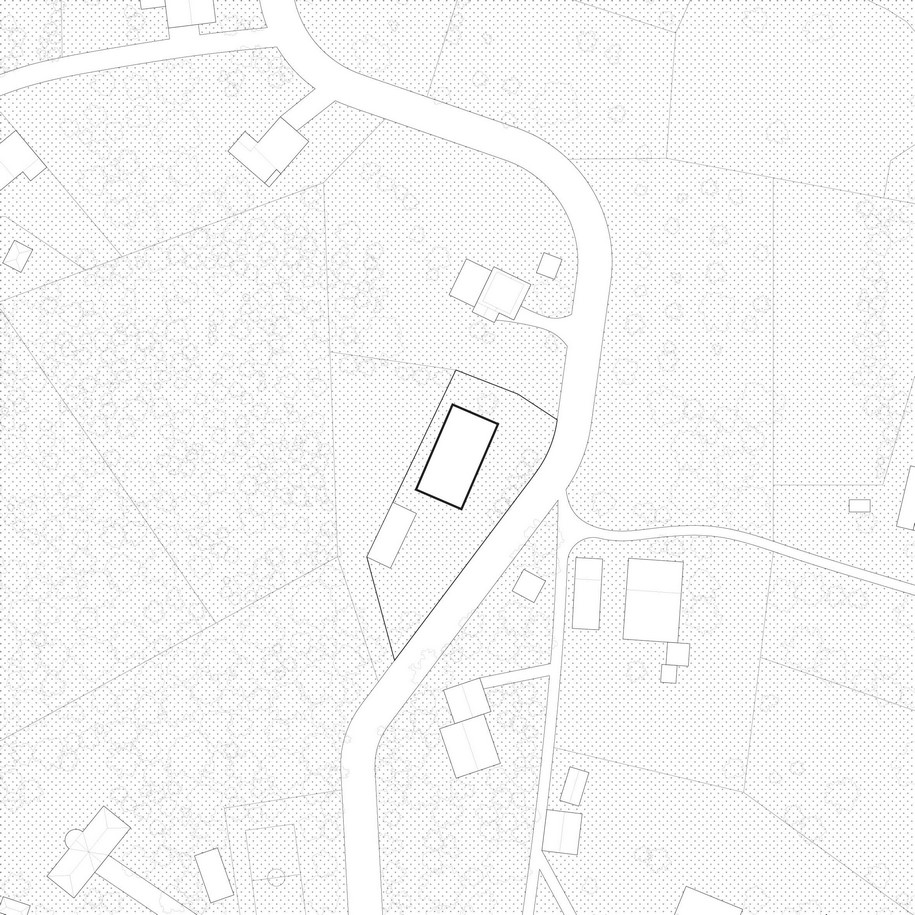
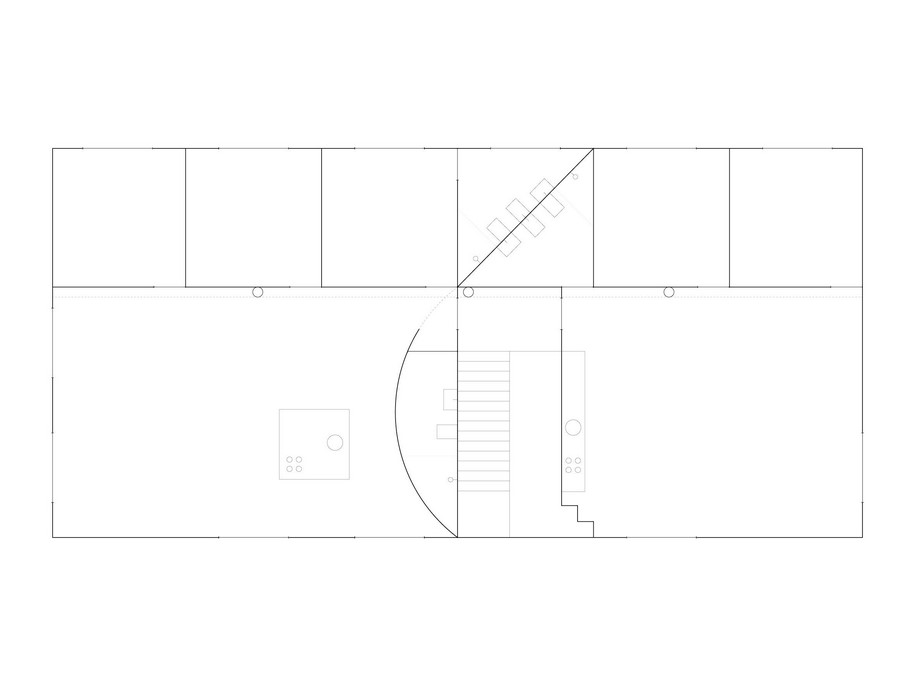
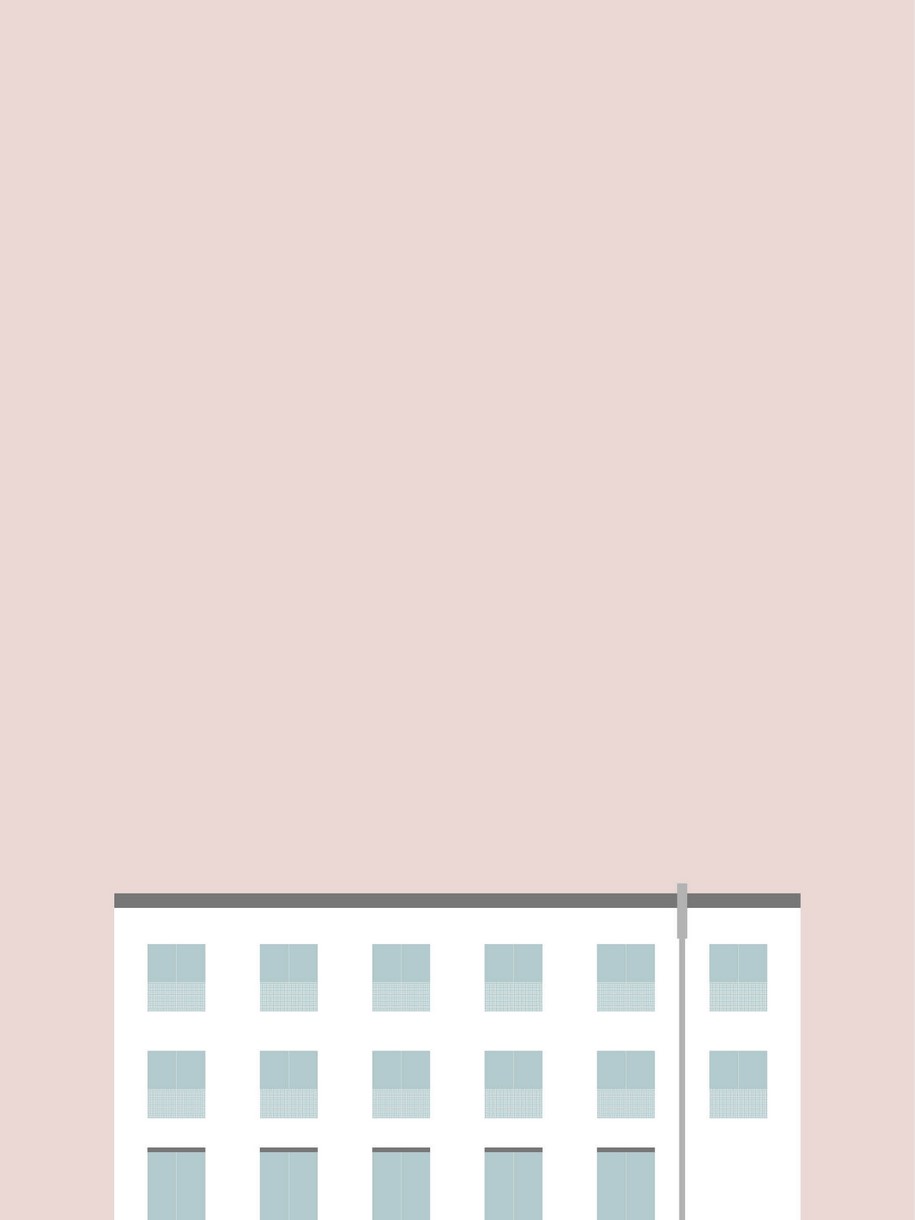
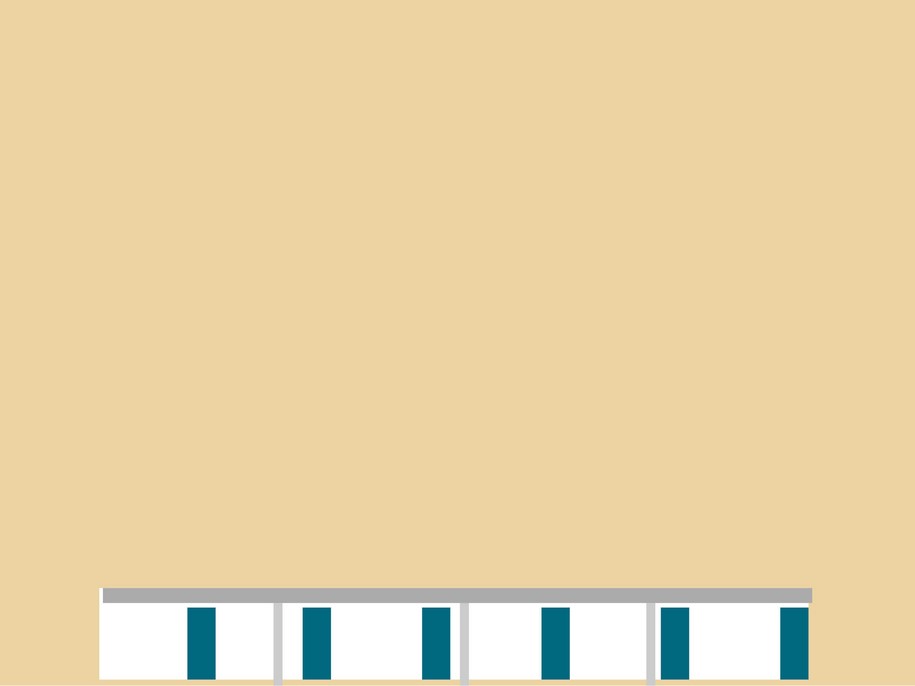
Facts & Credits
Architecture Fala Atelier
Project team filipe magalhães, ana luisa soares, ahmed belkhodja, julia andreychenko, rute peixoto, lera samovich, paulo sousa
Landscape architect joão magalhães
Location abragão, penafiel, Portugal
Year 2016-18
Client private
Contractor ruce
Photography ricardo loureiro
READ ALSO: Boardwalk Thessaloniki | SquareOne Studio
